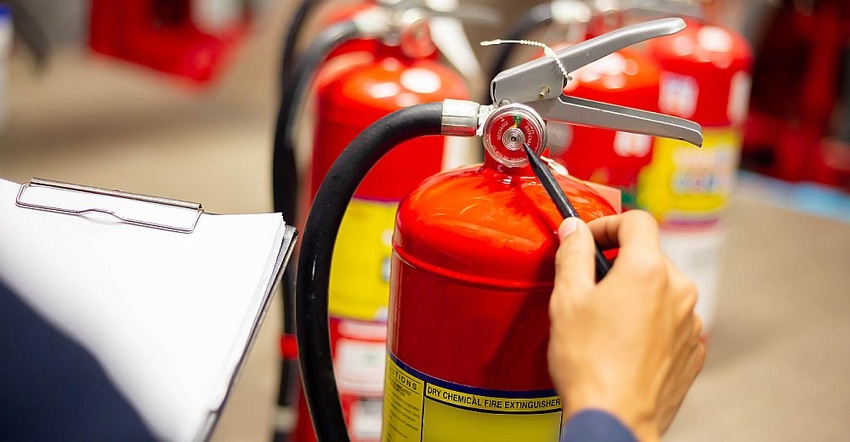Fire Safety and Prevention for Self-Storage Operators and Their Tenants
A fire can be ignited by any number of causes. If one happens at your self-storage facility, it can spread quickly and has the potential to devastate your business. A veteran fire-safety inspector provides tips for creating a safer environment for staff and tenants.

Fire prevention and safety are important considerations for any type of structure; however, the nature of self-storage businesses calls for an even more urgent approach. As a fire-safety inspector for close to 30 years, I’d like to suggest a few things you should do to keep your facility, employees and customers safe.
1. Assess risk. The easiest way to improve fire safety is to have your self-storage property evaluated by a professional inspector who can point out at-risk areas. They’ll assess the condition of the buildings, paths where fire can travel, escape routes and the best places for fire-prevention devices. Afterward, they’ll write a report advising you on items that need updating and actions you should take. Having your facility checked annually by a professional will also guarantee you’re following federal safety regulations and your site is current with all state and local codes.
2. Set policies. Some of the largest self-storage fires have been the result of human error. Mistakes include smoking near flammable materials and keeping prohibited items such as gas canisters inside units. Ensure your staff and customers follow the right procedures, and that tenants know what they should never store in their space.
3. Maintain your electrical systems. Keep up with all tasks throughout the year to ensure everything is in good working condition. A faulty HVAC unit or other piece of electrical equipment can easily spark a flame.
4. Use the proper fire-prevention devices and protocols. These include alarms, detectors, extinguishers, lighting and monitors. Add smoke detectors and heat monitors around the facility. If these are triggered, they should send a signal to your central alarm system and notify the fire department. Fire extinguishers must be placed within 75 feet of each storage unit for quick and easy access in case of an emergency. They should be classified as ABC models, which are capable of putting out most basic fires. All these prevention devices should be pointed out to customers during their initial property visit.
5. Train your team. All employees need to be trained in basic fire prevention and response. Each should know who they need to call in case of a disaster and how to suppress a fire, if possible, until emergency personnel arrive. It’s also important that they know the evacuation protocol for everyone on the premises. Self-storage facilities should have bi-annual fire drills so staff can practice fire-safety protocols.
6. Educate your self-storage tenants. Share key fire precautions with new renters. For example, explain the importance of having ample space for their belongings rather than stacking the unit all the way to the ceiling and wall to wall. While it may make financial sense for a person to rent a small unit, overcrowding can become a fire hazard. In most instances, overpacked units will be filled with combustible materials, such cardboard boxes, paper and clothing, which pose a large risk if fire breaks out. Also, remind them to store important documents in a fire-proof safe.
Fires start quickly and unexpectedly. Knowing where risks can occur and how to prevent them is important to keeping your self-storage employees and customers (plus their belongings) safe.
Chad Connor is the president of Affordable Fire & Safety in Gilbert, Arizona. Established in 1998, the company conducts thousands of fire inspections annually. For more information, call 480.680.7304.
About the Author(s)
You May Also Like





